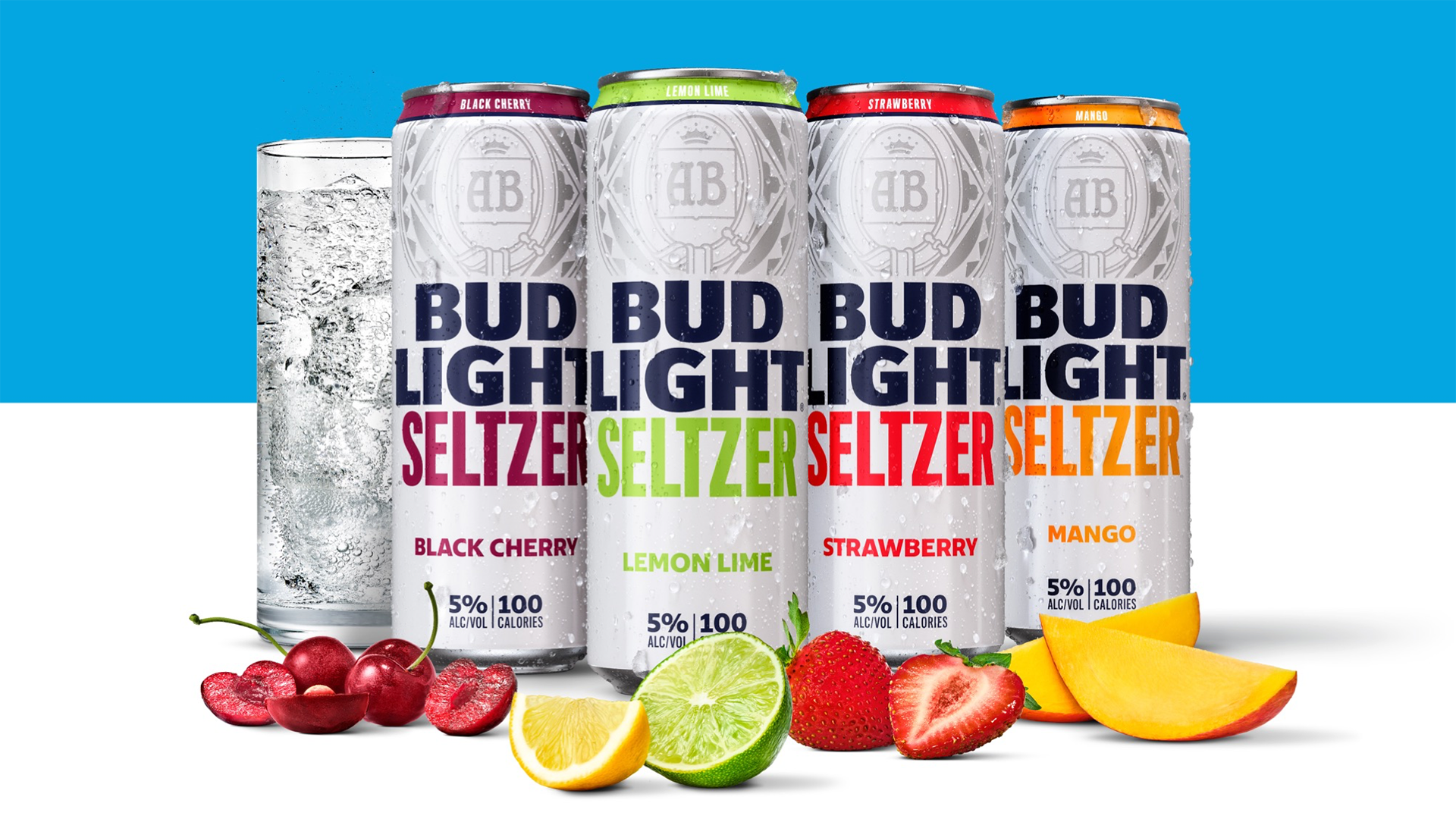Bud Light To Sink Its Claws Into Hard Seltzer Market
Rumors swirled in September that Anheuser-Busch InBev would debut a Bud Light hard seltzer, and at the time, A-B was coy, telling The Takeout only that "We have the industry's leading portfolio because we are never satisfied. ... Details on new product launches will be shared in due course." The cat's out of the bag now, as Anheuser-Busch announced yesterday via press release it will indeed debut Bud Light hard seltzer in early 2020. You have questions, we have answers.
Is it Bud Light, or is it seltzer? Releasing the seltzer under the Bud Light brand might be slightly confusing to some customers—the new product is hard seltzer, not beer—but Anheuser-Busch clearly thinks the potential confusion is worth it to convey the "light" aspect of its new seltzer. A desire for low-calorie, low-carb drinks is part of the appeal of hard seltzer, and Bud Light's version comes in at 100 calories, 2 grams of carbs, less than 1 gram of sugar, and 5% alcohol by volume.
Aren't these flavors a blatant White Claw rip-off?
Having tasted a number of hard seltzers, I can confidently say that certain flavors are tried-and-true winners across brands ("berry" isn't it). It's not surprising, then, that there's a lot of crossover between White Claw, Truly, and Bud Light's offerings; all three brands offer black cherry, lime, and mango flavors.
What's Bud Light's long game?
Anheuser-Busch already owns Bon & Viv brand hard seltzer, so why is it introducing a competing seltzer brand? Here's my hunch: Bud Light seltzer potentially has the power to come in at a lower price point than Bon & Viv, White Claw, Truly, and other brands. Most hard seltzers aren't cheap (relatively); a 12-pack of White Claw runs more than $15 at my local Walmart. Compare that to a 12-pack of Bud Light, which comes in around $11. If Bud Light hard seltzer could come in closer to Bud Light prices than White Claw prices, it has the potential to lure price-conscious shoppers away from other brands.
Bud Light also has massive name recognition, as it's the most consumed beer in America. If Bud Light seltzer can draw in new drinkers, perhaps Anheuser-Busch thinks it could convert them to Bud Light drinkers if the hard seltzer trend slows. I'm skeptical that today's hard seltzer drinkers will become tomorrow's grocery store light beer drinkers, but Anheuser-Busch certainly has the money and national presence to try to prove me wrong.
If there ain't no laws when you're drinking Claws, and there ain't no rulies when you're drinking Trulies, then...?
I got nothing.
